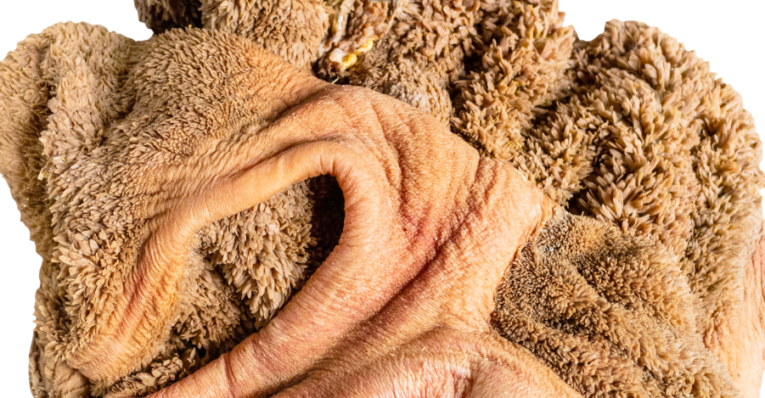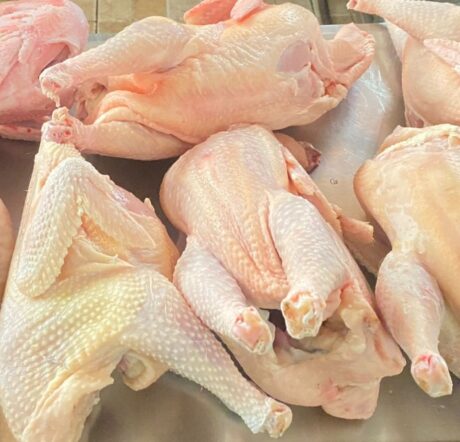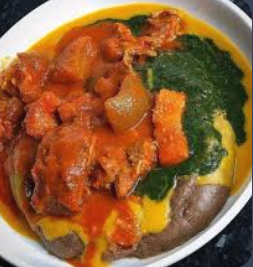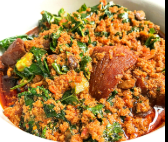Okasi (Afang Leaves) – per pack (Subscriber price only)
Description
Okasi, also called Afang leaves, is a popular leafy vegetable native to the Efik and Ibibio people of Southern Nigeria. It is a tough, slightly bitter leaf often sliced thinly and combined with waterleaf to balance its flavor and texture. Afang leaves are traditionally used in thick, hearty soups and are well-known for their rich, earthy taste.
Sources
Akwa Ibom State, Cross River State, and parts of Rivers State.
Health benefits
-
Rich in dietary fiber – aids digestion and supports gut health.
-
High in protein for a leafy vegetable – supports muscle repair and growth.
-
Contains essential minerals like calcium and magnesium – promotes strong bones and teeth.
-
Rich in antioxidants – helps protect the body from oxidative stress.
-
Boosts iron levels – supports red blood cell production and prevents anemia.
Common soups you can use it for
-
Afang Soup (Efik/Ibibio specialty)
-
Edikang Ikong Soup
-
Vegetable Okra Soup
-
Mixed Vegetable Soup with assorted meats and fish
Ewedu- per pack (Subscriber price only)
Description
Ewedu (Corchorus olitorius), also known as jute leaves, is a slimy, green leafy vegetable that is a staple in Yoruba cuisine. When cooked, it has a slippery texture, similar to okra, which makes it easy to swallow. The leaves are usually blended or whisked after boiling to achieve a smooth, viscous consistency. Ewedu is prized for its unique taste and texture, as well as its rich nutritional value.
Sources
Primarily cultivated in the southwestern states of Nigeria but also grown in other regions with warm, moist soil. It is commonly sold fresh in open markets and can also be home-grown in backyard gardens.
Health Benefits
-
Rich in vitamins A, C, and E, which promote good eyesight and healthy skin.
-
Supports digestion due to its mucilaginous (slimy) texture.
-
Boosts immunity and helps fight infections.
-
Promotes bone and teeth health with its high calcium content.
-
Aids postpartum recovery in women.
Common soups or dishes you can use it for
-
Ewedu soup (often served with amala and gbegiri)
-
Ewedu with stew and assorted meats
-
Mixed vegetable soups with okra
-
Ewedu with melon (egusi) combination soups
Utazi -per pack(Subscriber price only)
Description
Utazi, scientifically known as Gongronema latifolium, is a slightly bitter-sweet, aromatic leaf used both as a spice and vegetable in Nigerian cuisine. It is native to West Africa and is highly valued for its medicinal properties as well as its flavor-enhancing qualities in soups and traditional dishes.
Sources
Enugu, Abia, Anambra, and Ebonyi.
Health benefits
-
Aids digestion – helps reduce bloating and improve bowel movement.
-
Supports blood sugar regulation – beneficial for people with diabetes.
-
Rich in antioxidants – helps protect the body from oxidative stress.
-
Boosts immunity – contains vitamins and minerals that strengthen the immune system.
-
Improves appetite – often used in traditional medicine to stimulate hunger.
Common soups you can use it for
-
Nsala Soup (White Soup)
-
Oha Soup
-
Bitterleaf Soup (Ofe Onugbu)
-
Pepper Soup
-
Yam Pepper Soup with Fish or Meat
Ugwu- per pack (Subscriber price only)
Description
Ugu (Telfairia occidentalis), known as fluted pumpkin leaves, is one of Nigeria’s most popular and nutritious vegetables. The leaves are tender, slightly sweet, and have a rich green color, often used fresh in soups, stews, and sauces. The seeds of the plant are also edible and can be roasted or used in traditional meals.
Sources
Edo, Delta, Anambra, Imo, Enugu, and Cross River states.
Health benefits
-
Rich in iron – helps prevent and treat anemia.
-
High in vitamins A and C – supports vision, skin health, and boosts immunity.
-
Good source of calcium – strengthens bones and teeth.
-
Improves blood production – boosts hemoglobin levels.
-
Supports reproductive health – traditionally believed to enhance fertility.
Common soups you can use it for
-
Edikang Ikong Soup
-
Egusi Soup
-
Vegetable Soup (mixed leaves)
-
Ogbono Soup
-
Okra Soup











